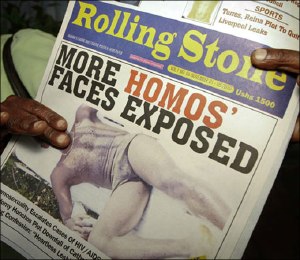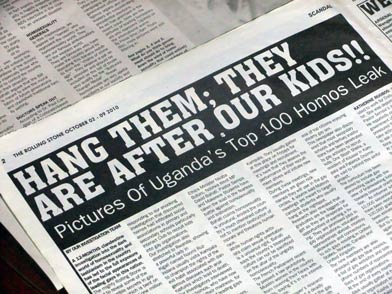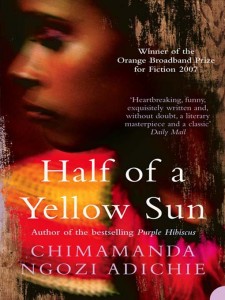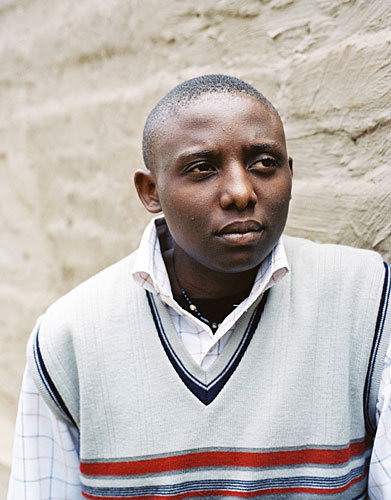 Â It’s been a little over a year since the brutal murder of David Kato, an LGBT activist who was hailed by many as the father of the gay rights movement in Uganda. David was bludgeoned to death in his home on January 26th, 2011, shortly after winning a lawsuit against a magazine which published the names and photographs of alleged gay rights activists (including David) and called for them to be executed.
 It’s been a little over a year since the brutal murder of David Kato, an LGBT activist who was hailed by many as the father of the gay rights movement in Uganda. David was bludgeoned to death in his home on January 26th, 2011, shortly after winning a lawsuit against a magazine which published the names and photographs of alleged gay rights activists (including David) and called for them to be executed.
The newspaper article had taken a cue from Uganda’s 2009 “Kill the Gays” bill, also known as the Anti-Homosexuality Bill (AHB), which prescribes the death penalty for the “crime†of being gay or HIV-positive, and prison sentences for friends, family, co-workers, and acquaintances who believe someone is homosexual but does not immediately report them to authorities.
Many feared a genocide of LGBT Ugandans were the bill to pass, and thus the murder of David Kato sparked international outrage. Human rights activists all over the world put pressure on Uganda’s government to dismiss the bill (which ran out of time before it could be voted on in parliament). The call for a “credible and impartial investigation” of Kato’s murder was answered with a small measure of bittersweet justice when Sidney Nsubuga Enoch received a sentence of 30 years for the crime.
But now, the draconian bill which began the chain reaction that led to David Kato’s death is back. A copy of Uganda’s Parliament Order Paper, dated February 7, 2012, has been making its way around the internet. Though, the government’s official spokeswoman maintains that the Ugandan government is “not interested†in the bill and that Cabinet had made its stand on the bill clearly last year by rejecting it, David Bahati, the senator who is sponsoring the bill, claims that the Ugandan government cannot influence his bill because it is a private members bill and as such, property of parliament and not Cabinet.
The return of the “Kill the Gays” bill is a major concern for Ugandan LGBT activists, but many have vowed to continue their struggle:
Amid the fuss over the re-introduction in parliament of the bills on Tuesday the activists put up a spirited defence for inclusion of homosexuals in the country’s National HIV/Aids response.
The HIV bill was challenged in April 2011 with a petition to Parliament by gay rights activists, contesting the exclusion of homosexuals from HIV/Aids prevention and control programmes.
This contentious bill was reintroduced alongside the anti-gay bill on Tuesday and has been put on the Parliamentary Order Paper that outlines priority Bills for discussion.
As the ongoing battle for LGBT tolerance in Uganda continues, activists abroad are also lending their support by leveraging media to spark critical conversations about LGBT rights in Uganda.
For instance, Val Kalende, a Ugandan journalist who was fired from her job for speaking out against the bill and was forced to relocate to the United States, reflects on her blog:
The death of David Kato has galvanized a breed of new activism and synergies in the Ugandan LGBT community. On my recent visit to Uganda, I met and interacted with a number of young activists and organizations whose joining the movement was a response to the death of this great activist. The movement has certainly grown bigger and stronger thanks to ongoing organizing by the Uganda Civil Society Coalition on Human Rights and Constitutional Law. It is encouraging to know that what began as a make-shift entity to respond to the Anti-Homosexuality bill has not only become proactive in action but more grounded in a multi-dimensional sexual rights advocacy. Members of the coalition feel that it is time to move Beyond the Anti-Homosexuality bill and build a movement of sexual rights activists who will influence policy and change repressive laws that hinder the freedom of sexual minorities.
Meanwhile, on February 11th, Call me Kuchu, a film by Malika Zouhali-Worrall and Katherine Fairfax Wright about David Kato’s life as the first openly gay man in Uganda will premier at the Berlin Film Festival:
Call Me Kuchu examines the astounding courage and determination required not only to battle an oppressive government, but also to maintain religious conviction in the face of the contradicting rhetoric of a powerful national church. As we paint a rare portrait of an activist community and its antagonists, our key question explores the concept of democracy: In a country where a judiciary increasingly recognizes the rights of individual kuchus, yet a popular vote and daily violence threaten to eradicate their rights altogether, can this small but spirited group bring about the political and religious change it seeks?
Via a series of presentation and panel discussions, the filmmakers have already been using the film to facilitate critical conversations about Uganda’s LGBT movement’s strategy. One of their hopes for the film is that it will become an accessible platform through which human rights activists from all walks of life can engage policy makers — perhaps even the “Kill Bill” sponsor, David Bahati — and hopefully arm LGBT Ugandans with the tools to fight against further criminalization, not just from a legal perspective, but from a human one as well.
Check out the trailer:
Call Me Kuchu – Trailer from Call Me Kuchu on Vimeo.





